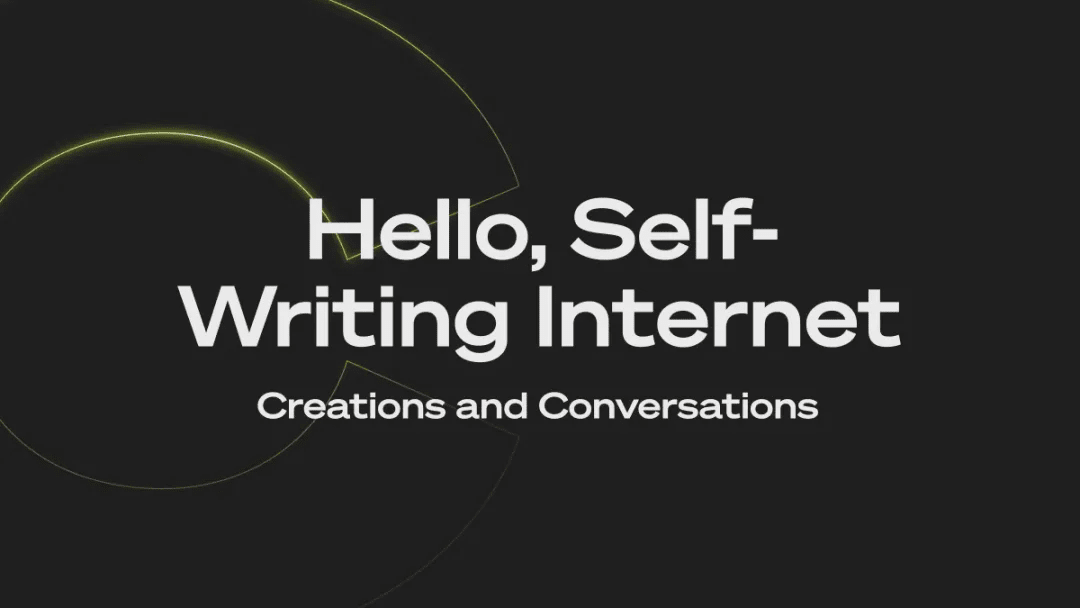
The pace of AI development remains strong, and there has been much discussion about 'vibe coding,' but this is clearly just the beginning. What comes next?
With the emergence of the self-writing internet, the internet and our digital lives are about to undergo a fundamental transformation.
The DFINITY Foundation has created a fully end-to-end decentralized AI development platform in the form of Caffeine, surpassing the promise of vibe coding, which was limited to developers. Caffeine will enable everyone, technical or non-technical, to define their digital world in their own way.
"Hello, Self-Writing Internet" held at Dogpatch Studios in San Francisco attracted 1,000 on-site attendees and 50,000 online viewers, showcasing the first Caffeine hackathon and discussing its future direction. This article will recap some highlights from the day, showcasing the limitless possibilities of Caffeine and the key questions raised by this new paradigm.
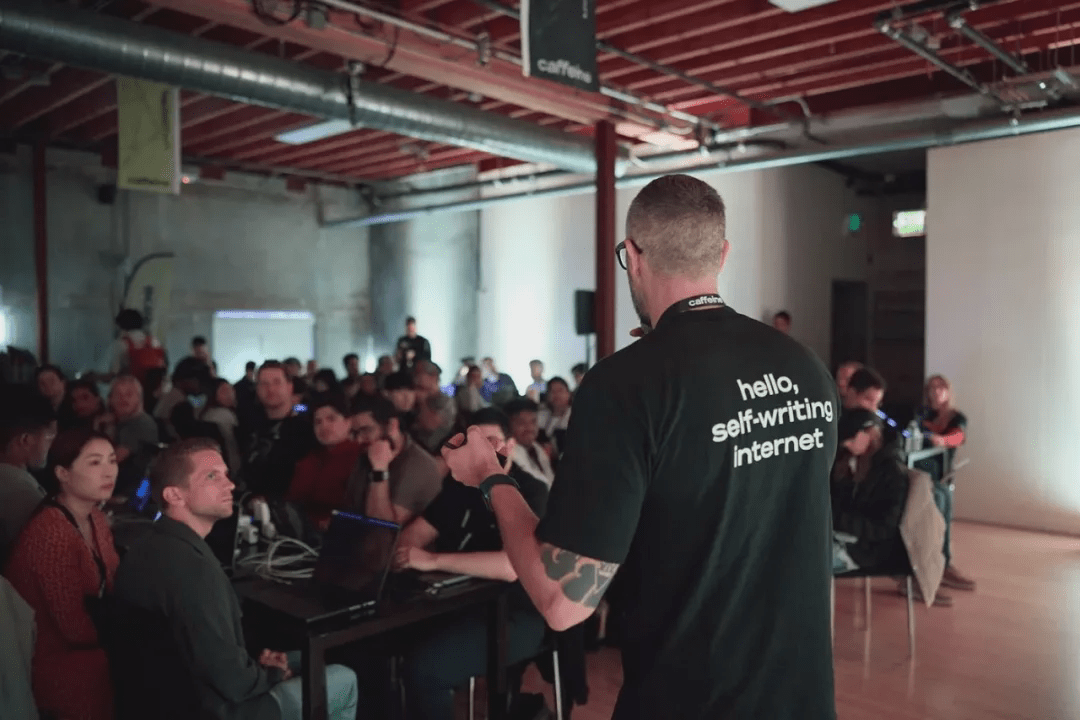
The wait is over
For attendees and online viewers eager to master new technologies, an important message came when Dominic Williams, founder and chief scientist of the DFINITY Foundation, took the stage:
"Tomorrow, we will begin opening access to those registered for the Alpha test," he revealed. "We will roll it out slowly and cautiously, but if you want to try it, make sure to get in line."
This marks the official public opening of Caffeine, with invitation codes being continuously distributed, allowing the first users to start building applications simply through conversation.
While the announcement emphasized how Caffeine is opening up to the world, selected groups at the event have begun to test this commitment.
First Caffeine Hackathon
"If you can describe it, Caffeine can build it." — Bruno Calabretta, Head of Ecosystem at the DFINITY Foundation
At the Caffeine hackathon, the atmosphere was lively, with 80 creators from various fields gathering to make history, each with different technical or non-technical backgrounds but a clear goal: to turn ideas into reality.
Creators keep this in mind, fully immersed in their projects, with some even not wanting to take breaks; this energy is infectious, and soon participants start answering each other's questions and suggesting, "Just ask Caffeine directly!"
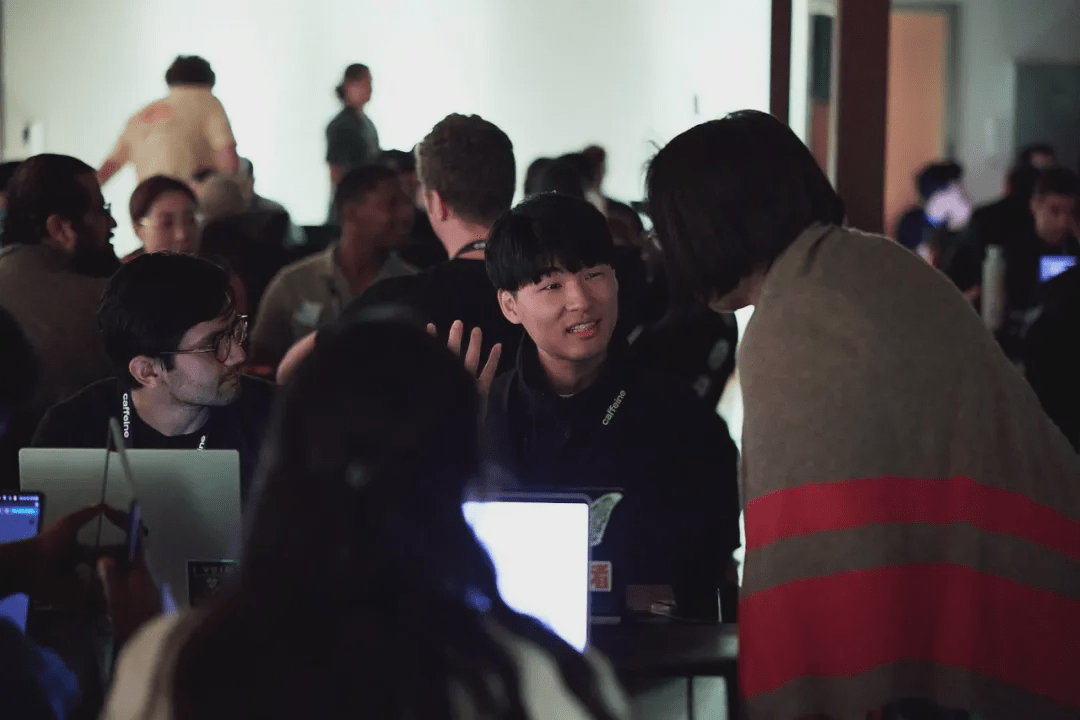
"The feedback and reactions have been fantastic," said Bruno Calabretta, the coordinator of this hackathon. "Everyone is incredibly excited about how Caffeine works and its potential uses."
A dynamic emerged between the two projects, where participants with technical backgrounds initially viewed Caffeine as a traditional programming tool, realizing they didn't have to write code from scratch but could leverage their expertise to enhance the building with Caffeine.
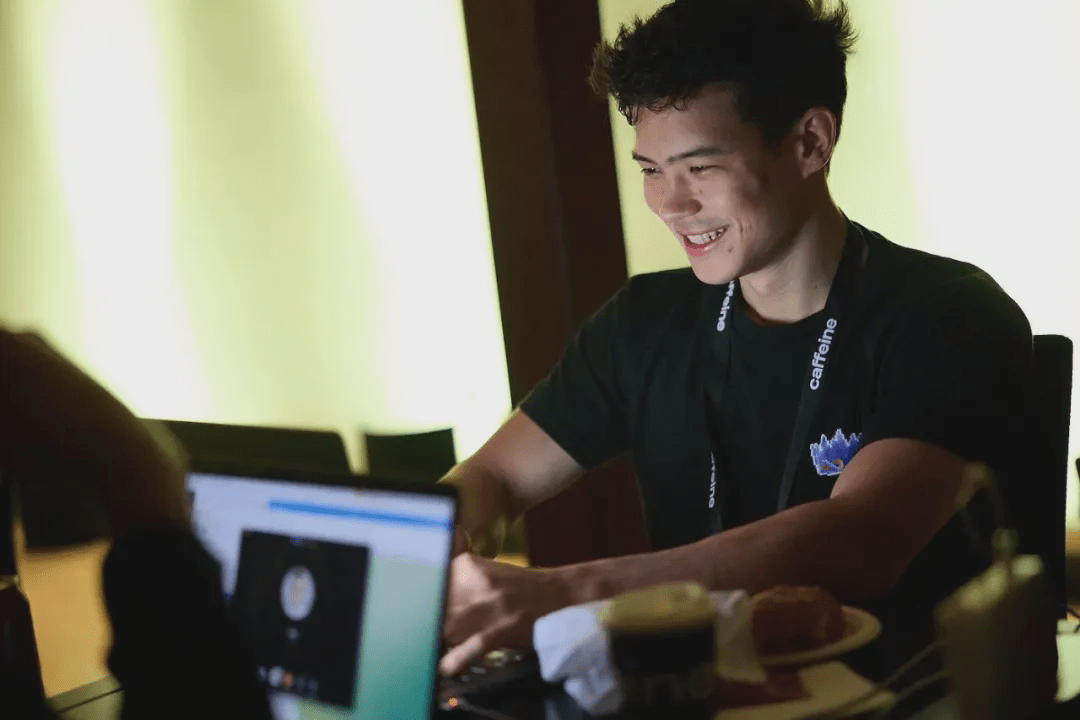
However, the mindset of non-technical participants was starkly different: "Non-technical people come here to truly explore and see what they can create," Bruno observed. "They know they have an idea... and then they spend six hours working to bring it to life, and in fact, everything progressed quite rapidly." This allowed them to spend most of their time gathering feedback and improving user experience, which is a key part of product development, resulting in astonishing outcomes that proved a programming background is no longer a prerequisite for application development.
Hackathon Winners
After hours of intense creation, the numbers speak for themselves: although participants could only submit one final piece, over 240 applications were created from scratch throughout the day, with more than 75 final pieces submitted to the judges, some projects even went through 10 to 25 iterations.
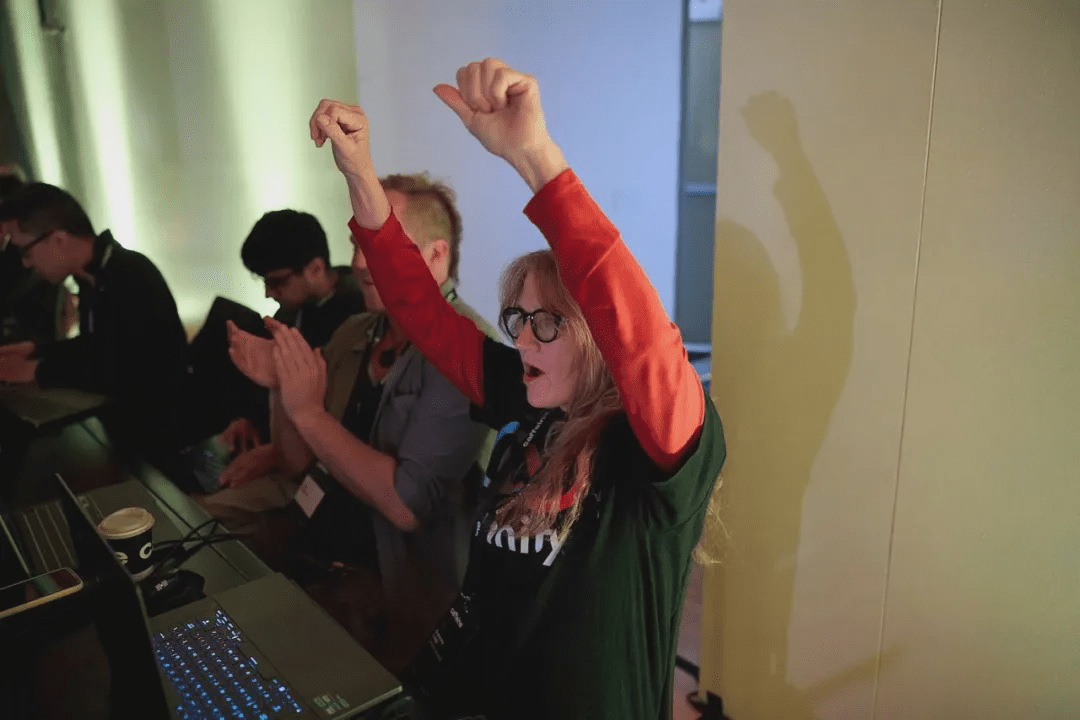
As the deadline approached, everyone was very focused. When asked if they needed more time, the unanimous response was "yes," earning them an extra fifteen minutes to create.
Judges selected winners for each project from these incredible creative works, with first-place prizes in two categories of $25,000, second-place prizes of $12,000, and third-place prizes of $7,500.
At the end of the event, winning projects were announced on the main stage.
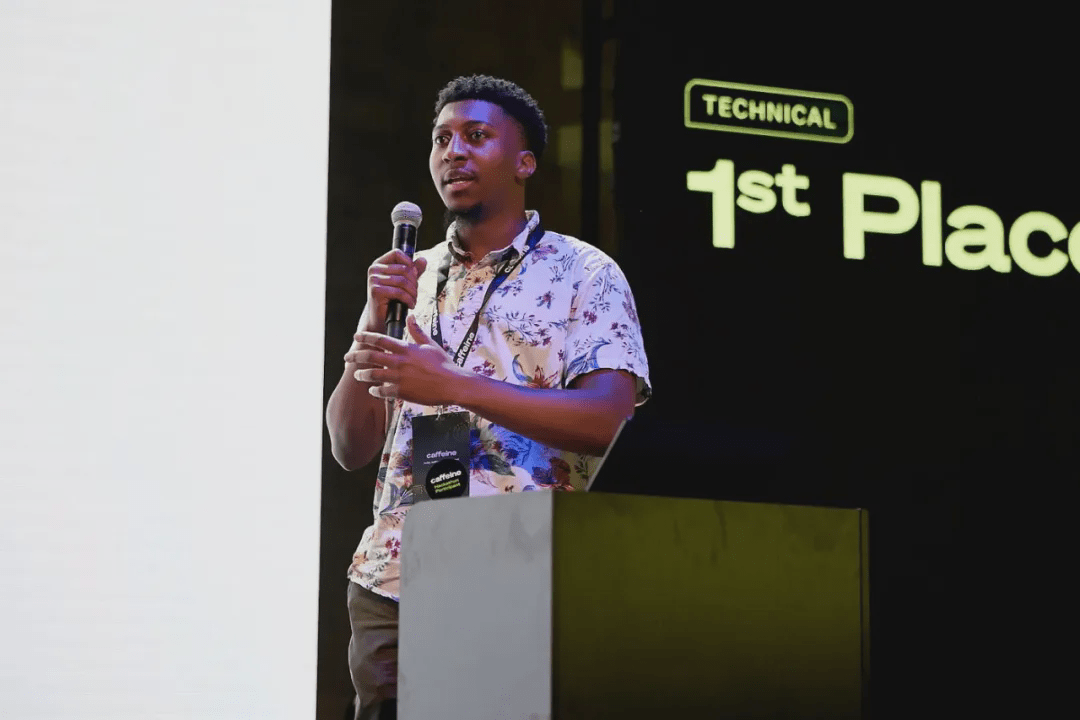
Technical Track Winners
First Place: Road Patrol, which enables citizens to improve city conditions through map-based reporting, including reports of potholes, broken streetlights, and more.
Second Place: K, which scans your AI-generated applications and projects for security vulnerabilities and other flaws.
Third Place: SkillSprout, which allows you to collect points and achievements, making learning new skills more fun.
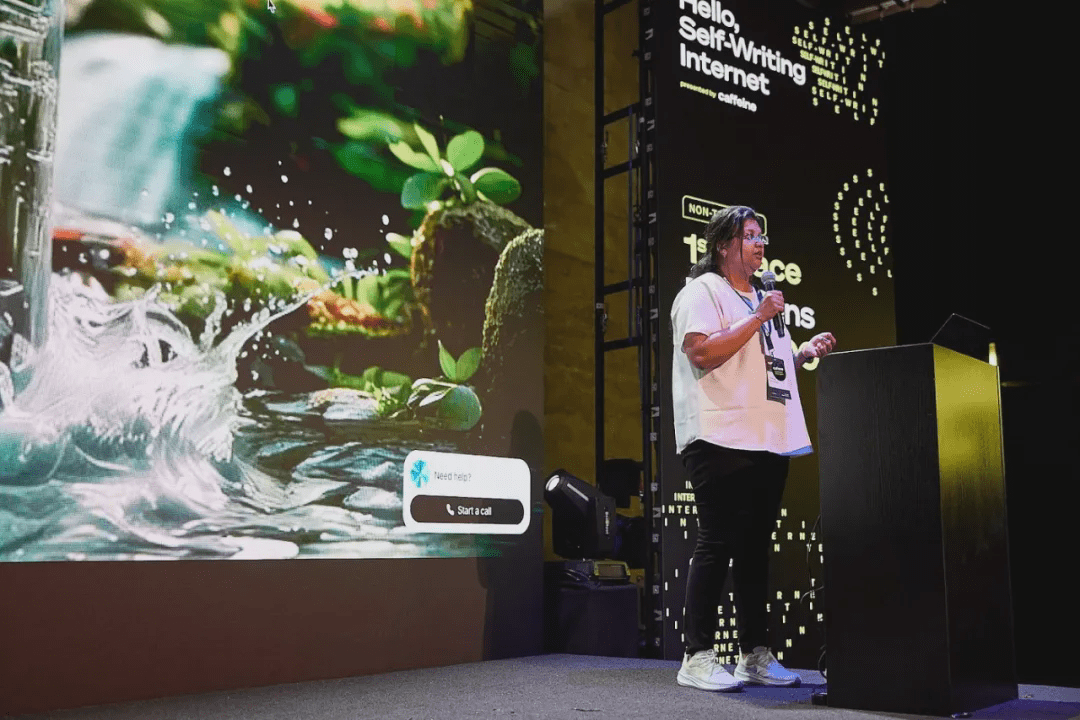
Non-Technical Track Winners
First Place: BlueLens, which enables you to monitor the safety of drinking water through real-time data and analytics, including an integrated AI chat tool.
Second Place: Will Maker, which allows you to generate legal documents for California, such as wills, powers of attorney, and healthcare directives.
Third Place: DentalTracks, which enables you to consolidate all dental records in one place while ensuring their privacy and security.
The diversity of winning applications highlights Caffeine's broad appeal. Projects like BlueLens, DentalTracks, and Will Maker showcase how ordinary people and entrepreneurs can build complex practical solutions tailored to specific needs without writing any code.
Road Patrol demonstrated the platform's potential in enterprise and civilian technology, helping create powerful management tools. Meanwhile, the security scanner K is a typical case that showcases how developers can use Caffeine to build specialized tools for their workflows, going beyond traditional vibe coding to create complete self-written solutions.
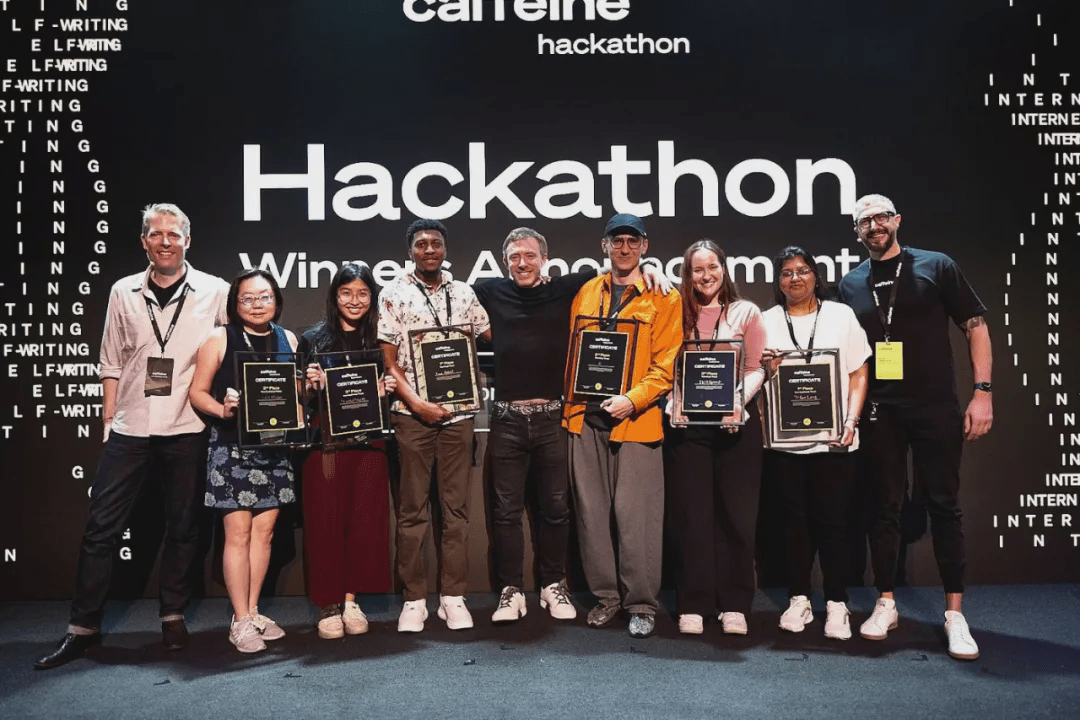
The success of non-technical participants is a strong testament to Caffeine's mission, but this event was not just a technology showcase, as Bruno Calabretta emphasized during the day: "We are making history today, and those participating in this hackathon are among the first in the world to use Caffeine and unlock its potential."
Caffeine Experience Pods
The excitement was not limited to the hackathon venue; a dedicated space was created behind the main stage for attendees to experience Caffeine firsthand.
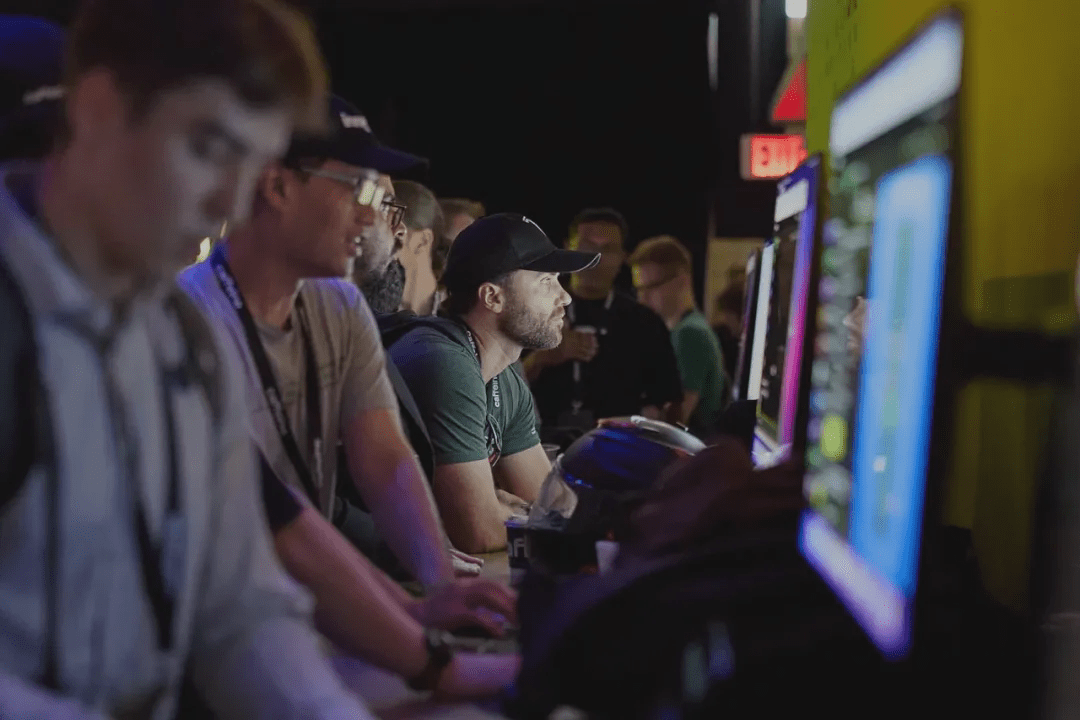
These experience pods instantly attracted numerous visitors, as Chief Business Officer Pierre Samaties remarked: "People flocked in to experience Caffeine within the experience pods." As soon as the pods opened, visitors rushed in, quickly building various practical tools from managing invoice processes to tracking job applications, turning their ideas into reality within minutes.
Next Hackathon
Those attending this event are among the first to experience Caffeine, but this is just the beginning.
The DFINITY Foundation plans to host a series of offline hackathons in various cities to spread this experience. For those aspiring to participate in the future, Bruno offered the following advice: "Start thinking about what you want to build, those ideas you've pondered for a long time but never realized, find that idea you know will be great, because now you can really make it happen."
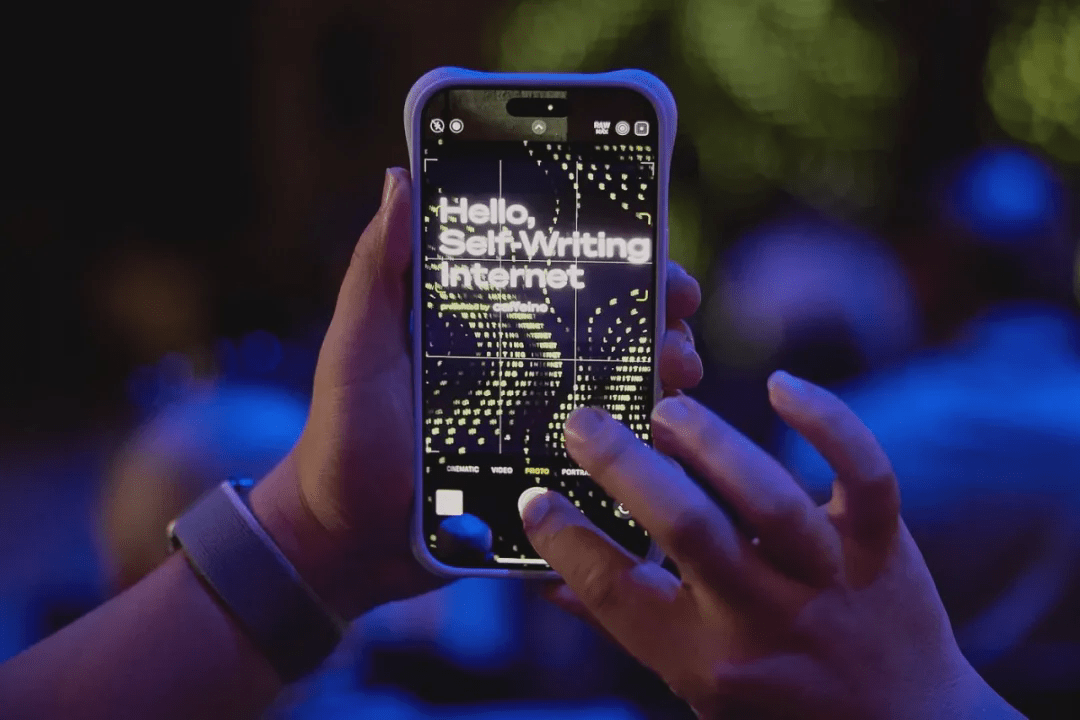
The message is clear: the self-writing internet has arrived, and the next wave of creation is open to everyone.
Keynotes and Demonstrations
Dominic Williams, founder and chief scientist of the DFINITY Foundation, took the stage for a series of keynotes and live demonstrations, describing the vision of the self-writing internet and its groundbreaking technologies driving it.
New Paradigm
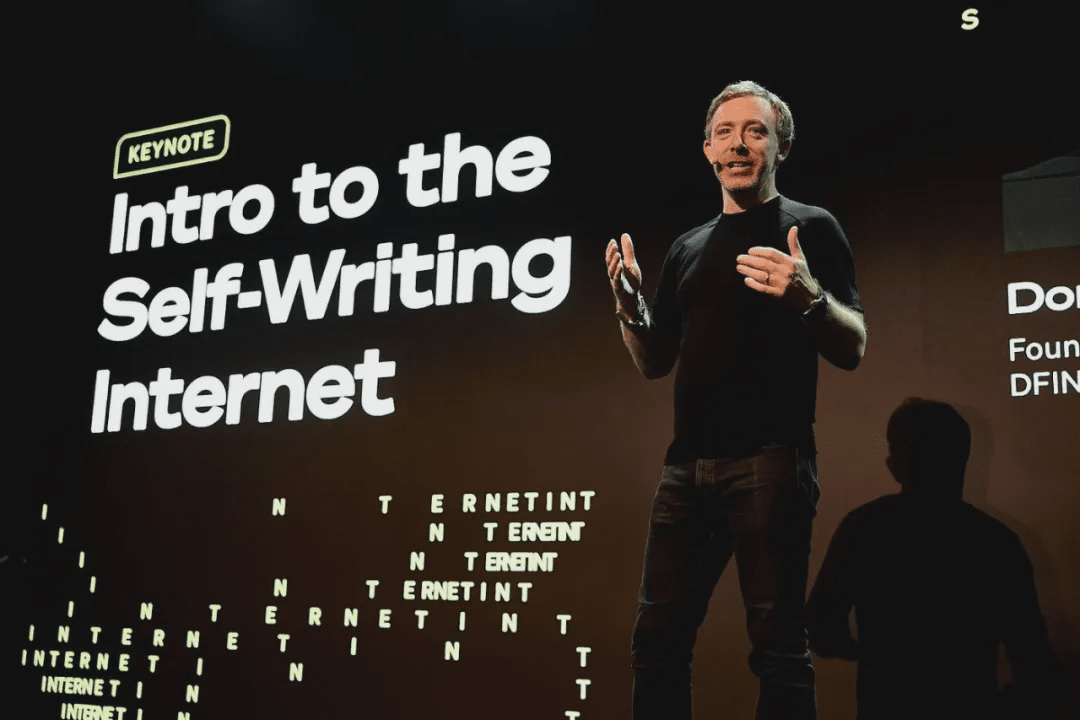
In his opening keynote, Dominic defined the current moment as one marked by a fundamental paradigm shift, noting: "In the future, especially now, with this technology, application development will be a conversation." He outlined the evolution of the internet, describing its journey from manual coding to vibe coding, and now to self-writing.
He described how the ability to build applications through natural language in this new era allows a potential global user base of 5 billion smartphone users to create freely. He explained that this shift is driven by a brand-new tech stack designed specifically for AI, which will produce applications that are fully owned, autonomous, and tamper-proof by their creators.
Data Persistence and Live Demonstrations
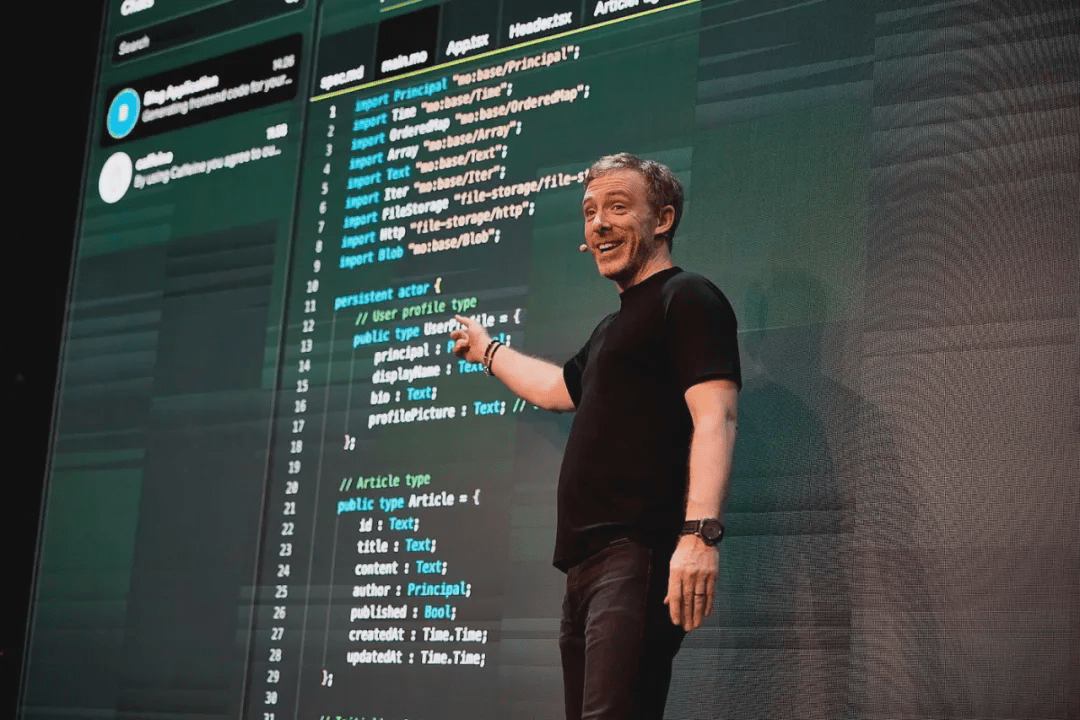
In the subsequent presentations, Dominic delved into one of the key technologies that facilitated this new era: enhanced orthogonal persistence. He explained that this technology allows data to exist directly in the code without the need for traditional databases, which is crucial for ensuring that data never gets lost during rapid, conversational self-writing upgrade cycles.
To prove this, he built and deployed three applications live on stage: a blog, a user photo library, and a task manager. He then upgraded the task manager and added new features, demonstrating how to securely and seamlessly migrate existing data of applications.
From Dialogue to Business
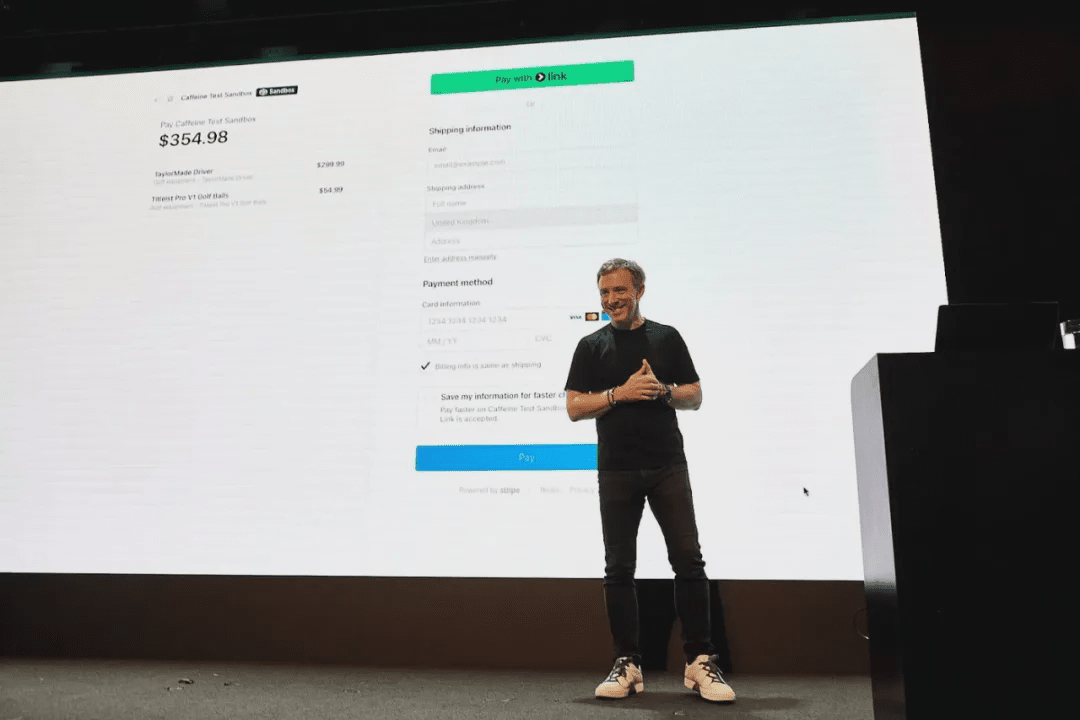
Before the last presentation of the day, Dominic unveiled the upcoming Caffeine application marketplace, a brand-new open application distribution model where users can "clone rather than install" applications, allowing them to customize and draw inspiration from the contributions of others in the Caffeine ecosystem.
This will enable Caffeine users to turn their creations into revenue. To showcase the application marketplace, he cloned two existing applications: a task management app and a jewelry e-commerce store.
But Caffeine's e-commerce potential goes far beyond this. To demonstrate the platform's powerful capabilities built from scratch, Dominic also created a golf store from scratch with a command, including integrated Stripe payment functionality.
He concluded: "The system is designed to enable individuals and organizations to create secure, resilient, and autonomous production applications entirely through conversation."
Dialogue
In addition to live demonstrations and hackathon creations, the day was filled with profound discussions with industry leaders exploring the future of AI, investment, and the internet itself.
Interview: UTOPIA for Enterprises and Government
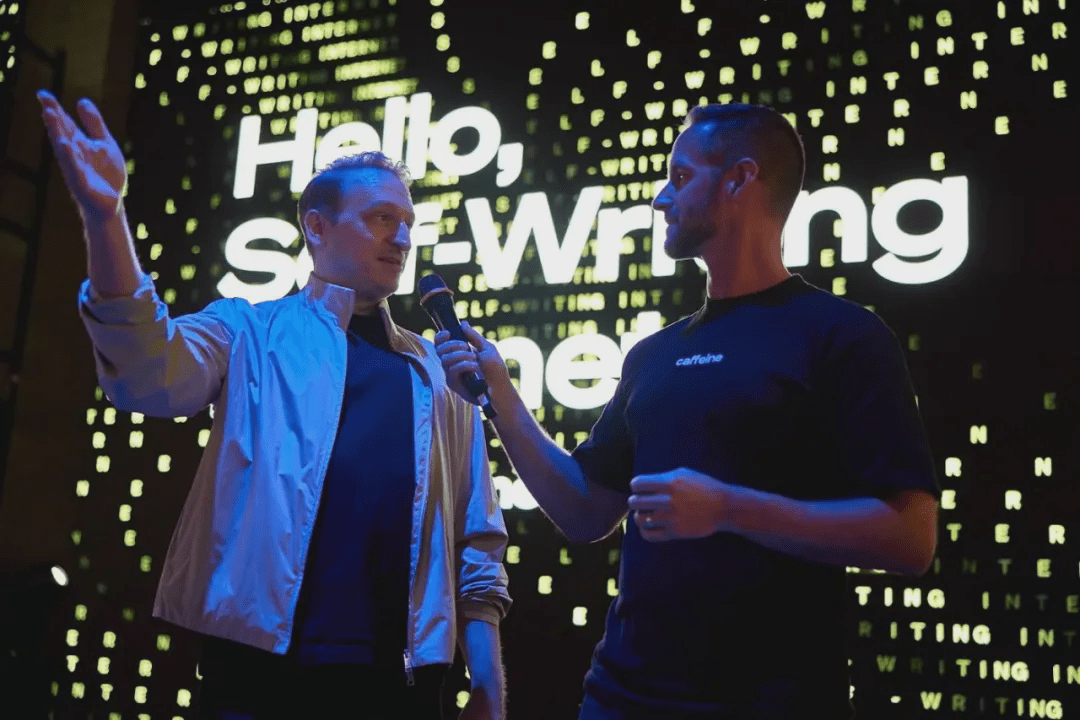
In an exclusive interview during the live stream of "Hello, Self-Writing Internet," Pierre Samaties, Chief Business Officer of the DFINITY Foundation, discussed the significance of UTOPIA for enterprise and government clients, describing UTOPIA as the private version of the Internet Computer, designed for organizations that need complete control over hardware for digital sovereignty.
This directly addresses the main trend of governments and enterprises seeking to build their sovereign software, breaking free from data privacy issues associated with traditional tech giants.
Pierre pointed out: "Caffeine could play a greater role in the enterprise and government markets." He explained that the combination of Caffeine and UTOPIA provides powerful tools for building and customizing purpose-fit software, bypassing lengthy and stringent procurement processes.
Panel Discussion: From Seed to Singularity - Exploring the Next Frontier of AI Investment
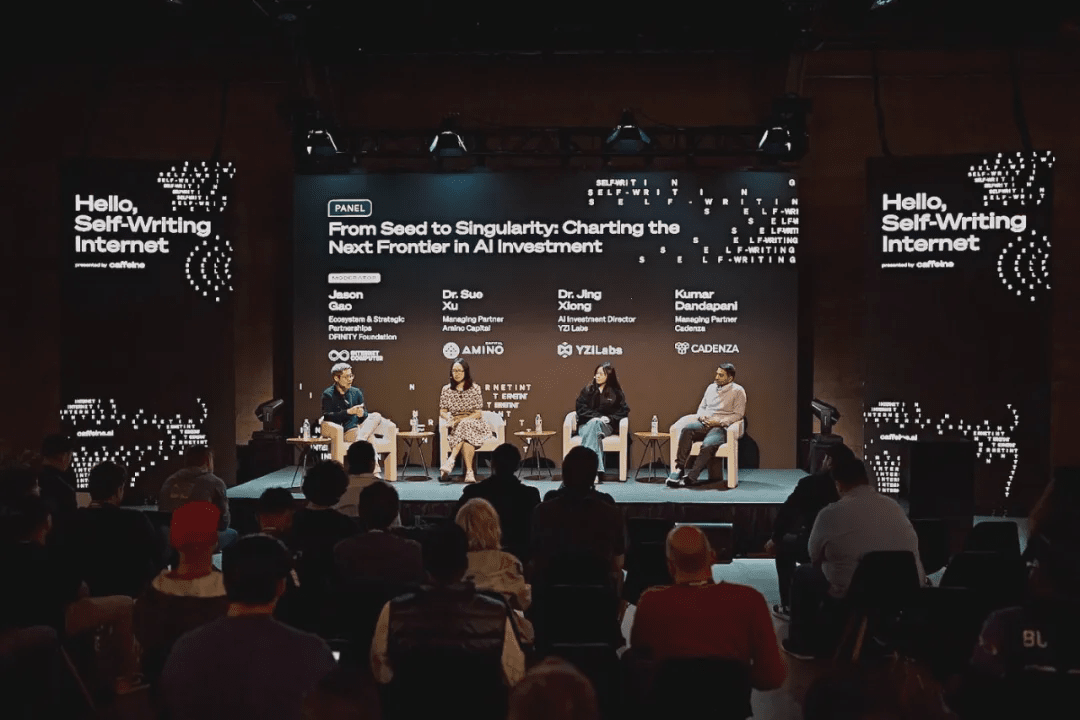
Panel Members:
Dr. Sue Xu, Managing Partner at Amino Capital
Kumar Dandapani, Executive Partner at Cadenza
Jing Xiong, AI Investment Director at YZi Labs
Moderator: Jason Gao, DFINITY Foundation, Ecosystem and Strategic Partnerships
Three Key Takeaways:
Investment is shifting from data-dependent AI to self-evolving AI: the panel noted that investment strategies are clearly moving from AI that relies on human-labeled data to self-learning, agent-based AI capable of autonomously executing complex, domain-specific tasks.
The evolution from 'co-pilot' to 'co-creator': it is widely recognized that AI development tools are moving beyond merely aiding developers to becoming autonomous 'co-creators,' a shift that will spawn a new wave of 'solo unicorns' and fundamentally change the startup landscape.
Computing is the new capital: a recurring theme is that acquiring computing power is a critical bottleneck and a key investment argument. Platforms like Caffeine that can democratize computing power or lower computing costs are seen as extremely valuable but are currently underestimated.
Fireside Chat: AI Expansion as an Engine for Innovation and Growth
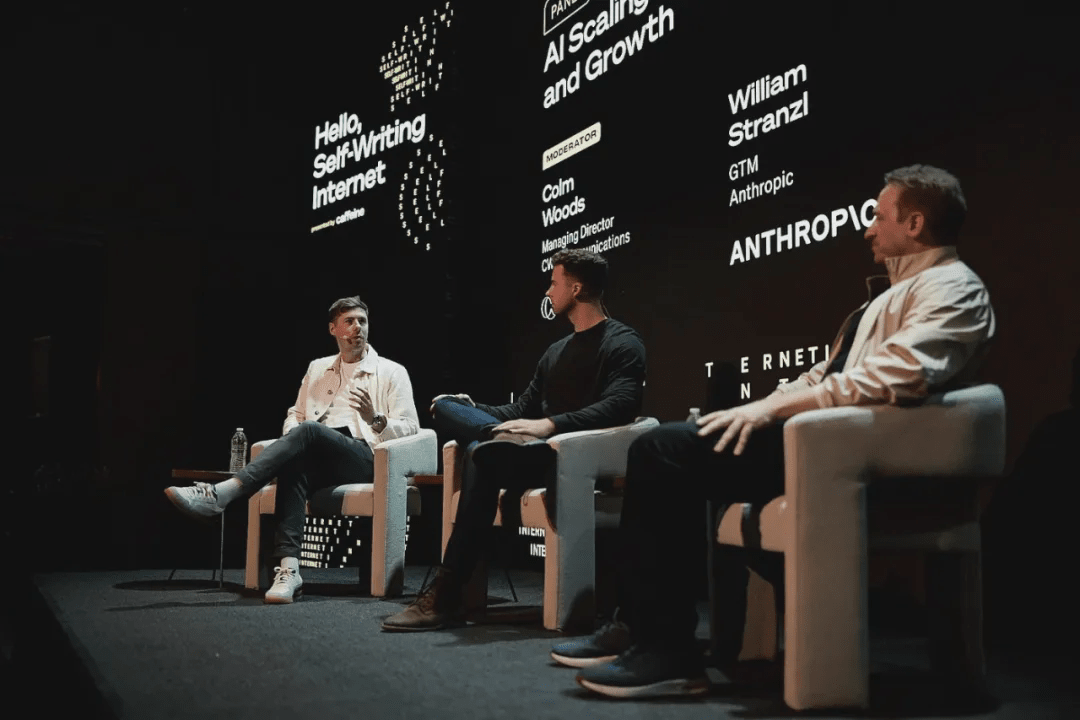
Guests:
William Stranzl, GTM, Anthropic
Pierre Samaties, Chief Business Officer of the DFINITY Foundation
Moderator: Colm Woods, Managing Director of CW8 Communications
Three Key Takeaways:
Enterprise AI is moving from experimentation to implementation: companies are actively leveraging AI to explore new revenue streams, driven by a desire for innovation and to stay competitive. This is shifting conversations from simple chatbots to complex agent-based AI that can act as virtual collaborators.
Autonomy and customization are crucial for applications: for enterprise and government clients, the ability to build autonomous software on controlled infrastructures like UTOPIA is a major driving force, allowing for the development of highly customized applications to fit specific business processes rather than forcing processes to adapt to the software.
A new open application economy is emerging: the combination of powerful AI models and platforms like Caffeine is fundamentally changing how software is created and distributed, leading to new trends in ultra-localized, decentralized applications.
Fireside Chat: From Protocols to Possibilities - The Internet Yesterday, Today, and Tomorrow
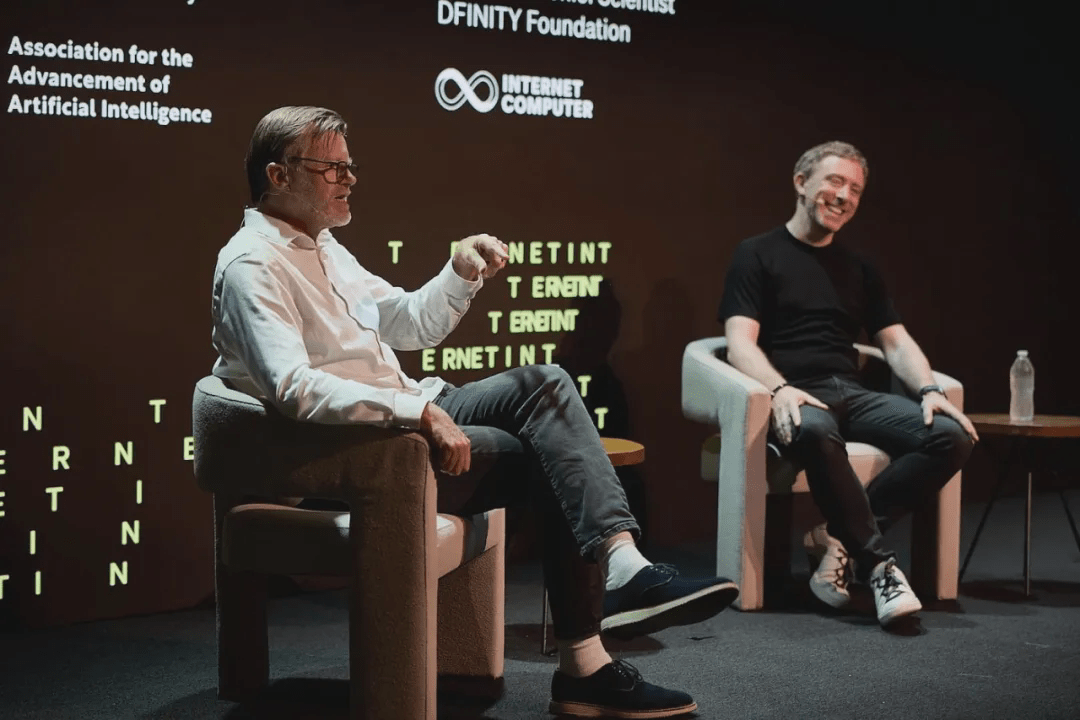
Guests: Dominic Williams, Founder and Chief Scientist of the DFINITY Foundation
Moderator: Michael Casey, Chair of the AI Association
Three Key Takeaways:
Self-writing is a new paradigm, not just better vibe coding: the discussion distinguished between vibe coding (where engineers use AI as a tool) and self-writing (where the entire application lifecycle is a conversation), a shift that transforms development from a technical task into a creative one that anyone can participate in.
The future of the internet is fluid and democratized: this chat explored how developing applications will become as ubiquitous as web searches, leading to the emergence of a "fluid network" where AI can dynamically generate user experiences by integrating the functionalities of various applications (similar to microservices).
A new paradigm requires a brand-new, autonomous tech stack: speakers emphasized that, like the previous mobile era, the self-writing era requires a purpose-built tech stack. The Internet Computer provides this stack, offering tamper-proof, highly resilient, and autonomous applications that run without the overhead of traditional cybersecurity, providing critical safety barriers for the AI-driven development world.
Panel Discussion: Smart Barriers - Governance and Security in the Age of AI
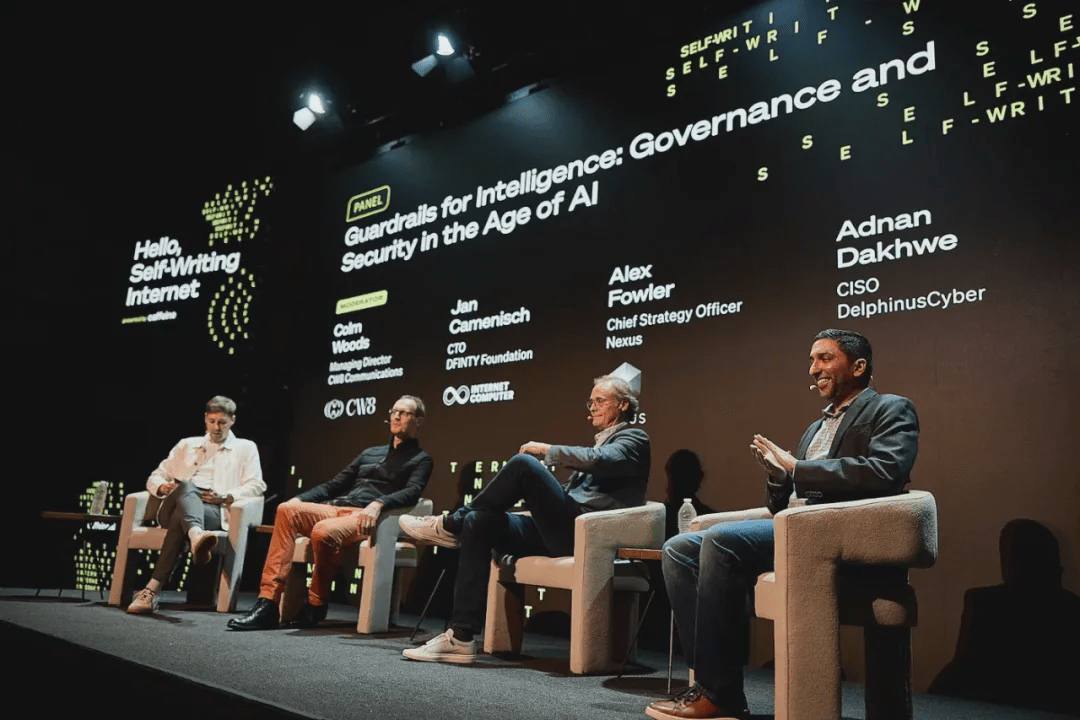
Panel Members:
Jan Camenisch, Chief Technology Officer of the DFINITY Foundation
Alex Fowler, Chief Strategy Officer of Nexus
Adnan Dakhwe, Chief Information Security Officer of DelphinusCyber
Moderator: Colm Woods, Managing Director of CW8 Communications
Three Key Takeaways:
In the current AI boom, security and privacy are often overlooked: the panel emphasized a "leadership crisis," where the pressures of speed and monetization frequently overshadow fundamental security and privacy issues, leaving users to fend for themselves.
Decentralized infrastructure provides a more secure foundation: panel members compared the "fragmented" traditional IT stack with secure design protocols like the Internet Computer, noting that platforms like Caffeine can help users migrate to this safer, more autonomous environment, allowing them better control over their data and applications.
Real AI governance requires end-to-end decentralization: to effectively govern powerful AI, control must be distributed across the entire stack, from training data and models to execution environments, eliminating single points of failure and ensuring long-term security and consistency.
The Future
"Hello, Self-Writing Internet" is a milestone event that brought together the true talents of hackathon winners, visionary keynotes, and insightful panel discussions, marking the arrival of a new paradigm.
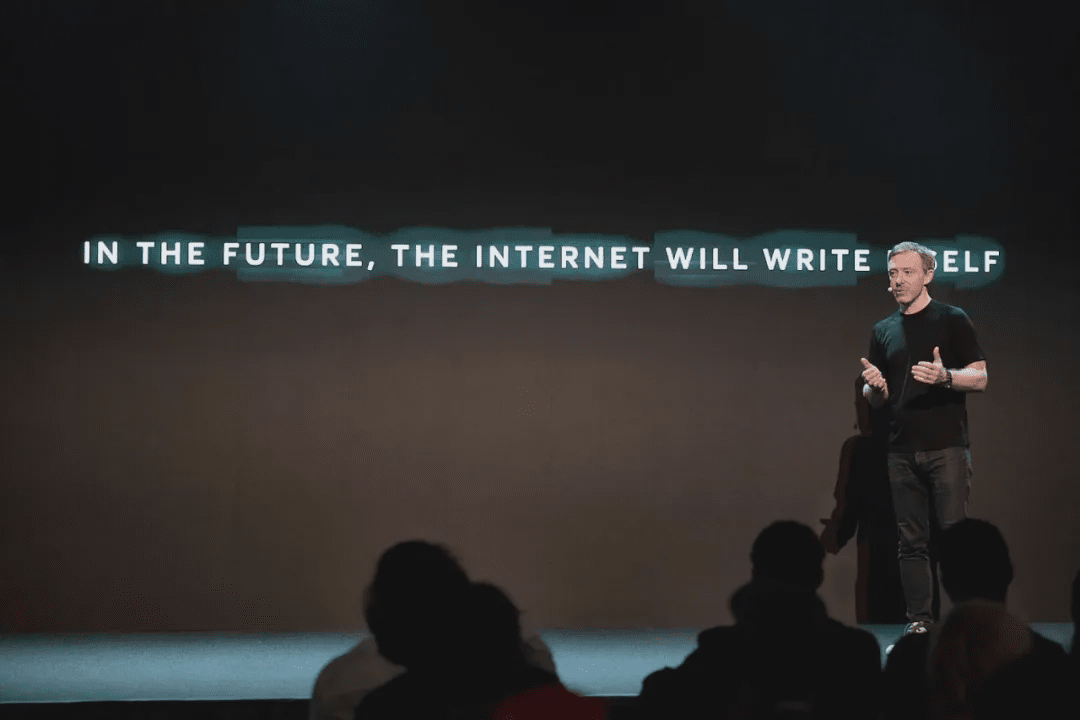
This day showcased a future where the ability to create and deploy complete applications is no longer constrained by technical skills, as Dominic Williams explained, "In the future, technical teams' superpowers will be unleashed solely through natural language."
However, the vibrancy and creativity showcased in San Francisco prove that the self-writing internet is not a distant concept but a reality today.
We would like to thank everyone who participated and watched in San Francisco, including the outstanding hackathon participants and insightful speakers who shared their expertise.
Stay updated on Caffeine
You can stay updated on Caffeine on X.
Relive the day
You can watch the full live stream of the event here:
youtube.com/watch?v=UDgaWOym9Hk
Experience Caffeine firsthand
Become one of the first to build applications just by chatting, apply for early access to Caffeine, and invitation codes are now being rolled out. Apply here:
caffeine.ai

IC content you care about
Technical Advances | Project Information | Global Events
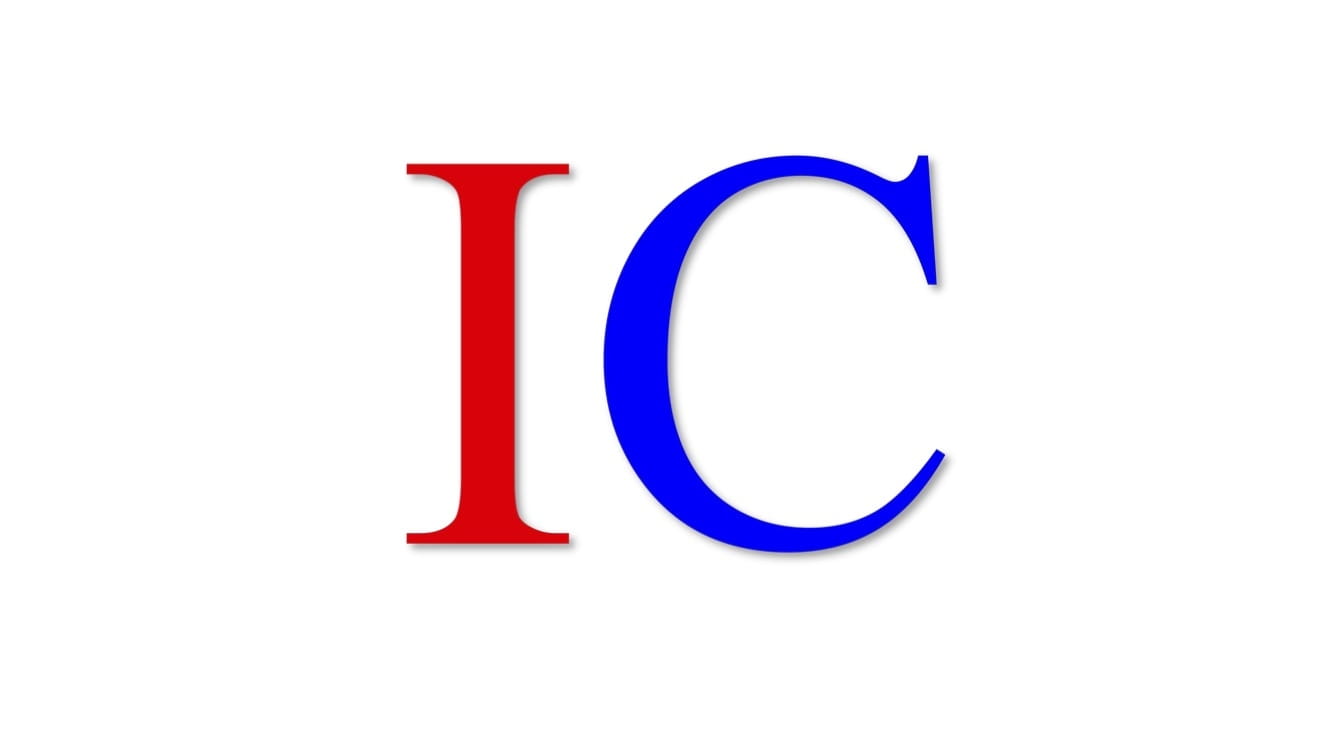
Follow the IC Binance channel
Stay updated
